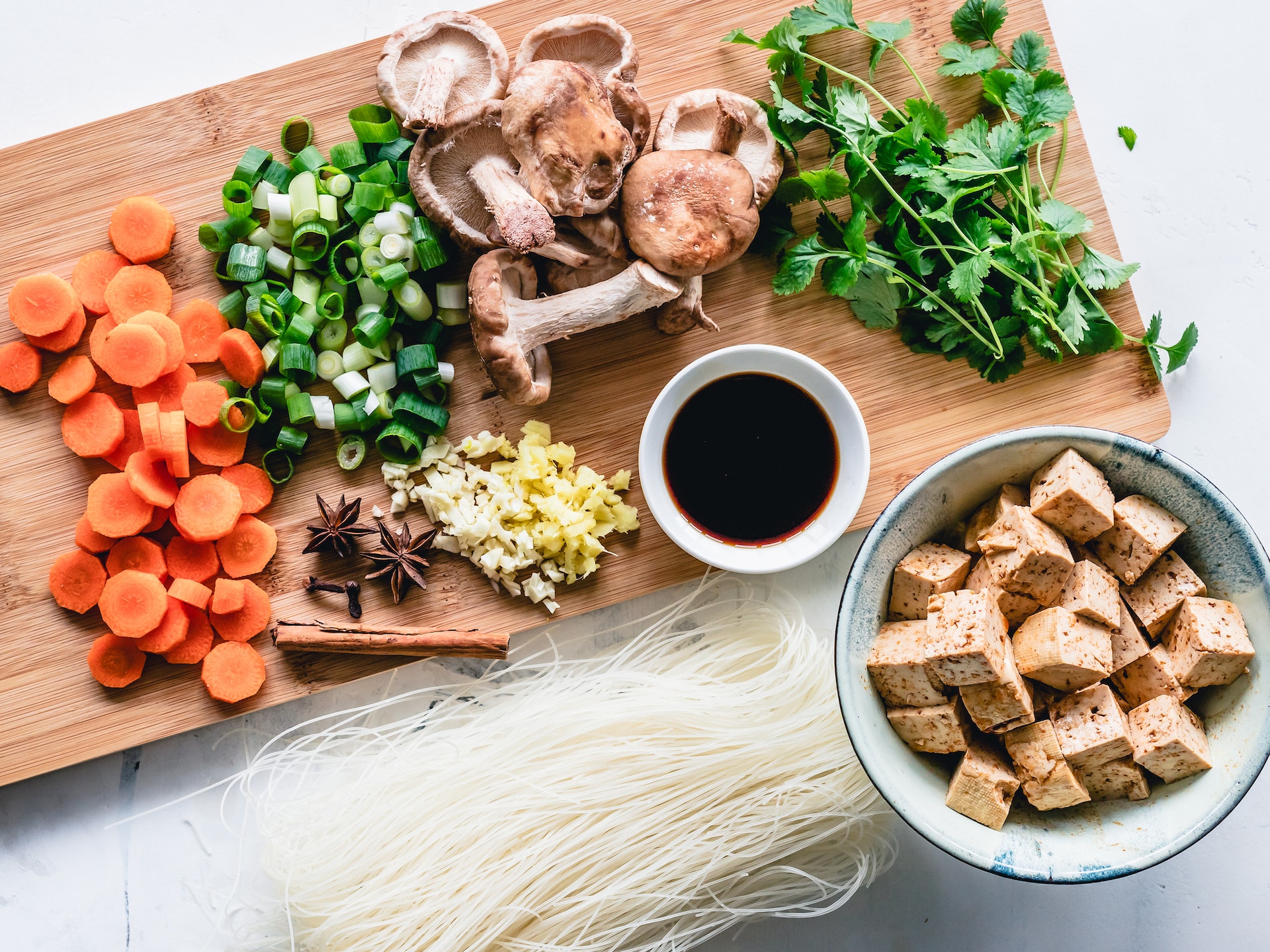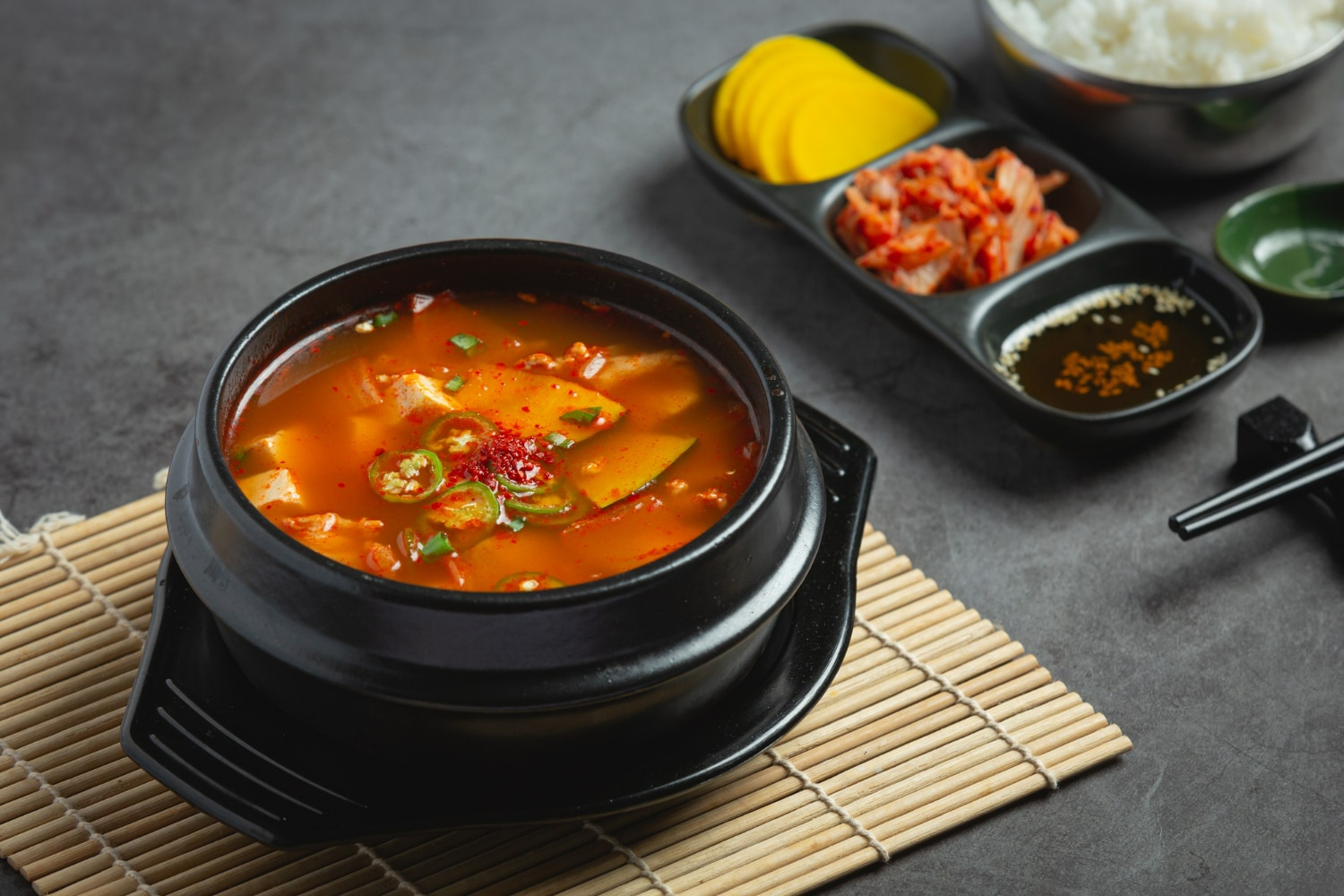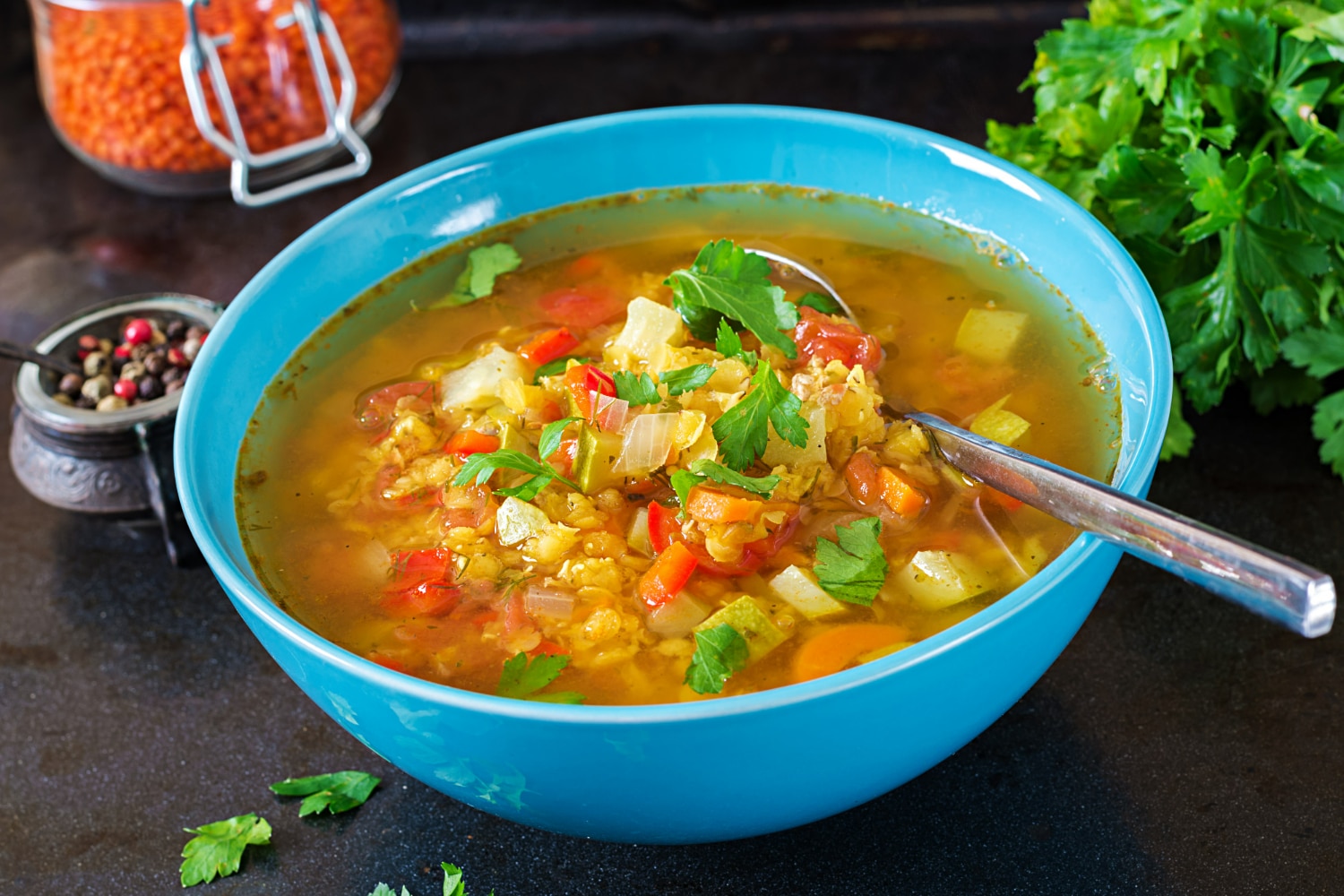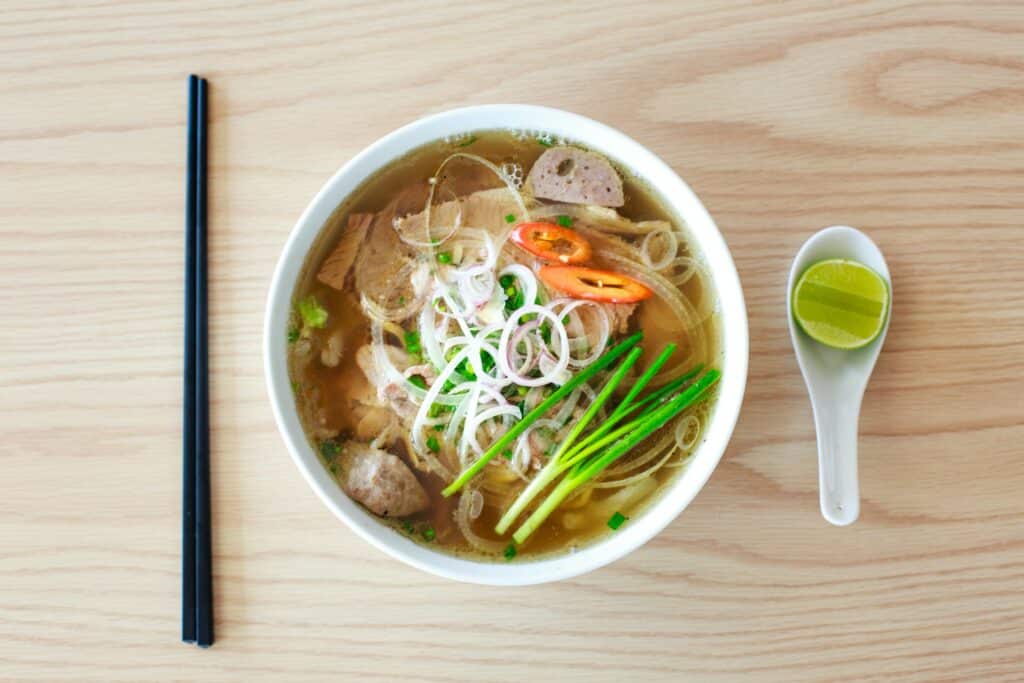Korean Tofu Soup, also known as “Sundubu jjigae” is one of the famous Korean dishes. This hearty and flavorful soup with diverse nutritious offerings not only delights the taste buds but also offers a range of health benefits. In this article, we will talk about the nutrition and benefits of Korean Tofu Soup and its key ingredients.
Korean Tofu Soup Nutrition
-
Proteins
Tofu is full of proteins. We all know protein is essential for muscle repair and growth. If someone is looking to increase protein intake without meat, tofu is a great option.
-
Rich In Dietary Fibre
The combination of vegetables and tofu ensures a good intake of dietary fibre, promoting digestive health and aiding in weight management.
-
Full Of Probiotics
Kimchi’s probiotic content supports a balanced gut microbiome, which is linked to improved digestion, immune function, and even mental health.
-
Loaded With Vitamins and Minerals
The soup is rich in essential vitamins and minerals, including vitamin A, vitamin C, potassium, and calcium, which contribute to overall well-being.
-
Low in Saturated Fat
Korean Tofu Soup is generally low in saturated fat, which is beneficial for heart health.
-
Antioxidants
The addition of ingredients like gochugaru and other spices not only enhances the flavour but also provides antioxidants that can help reduce inflammation and combat free radicals.
Ingredients And Their Nutritional Contribution In Korean Tofu

-
Tofu (Sundubu)
The star ingredient of Korean Tofu Soup, tofu is an excellent source of plant-based protein. A 100g serving of tofu contains approximately 8 grams of protein, making it an ideal choice for vegetarians and vegans. Tofu is also rich in essential amino acids, calcium, and iron, which are vital for overall health.
This spicy fermented cabbage is a staple in Korean cuisine. Kimchi is packed with probiotics, which support a healthy gut microbiome. It’s also a good source of vitamins A and C, as well as fibre, aiding digestion and supporting the immune system.
-
Vegetables
Common vegetables in Sundubu jjigae include mushrooms, zucchini, and green onions. These provide a range of vitamins and minerals, particularly vitamin C, potassium, and dietary fibre. They add texture, flavour, and nutritional value to the dish.
-
Broth
The broth in tofu is often made with dried anchovies, kelp, or beef. While this adds a savoury umami flavour, it can also be high in sodium. Opting for a low-sodium broth can make the dish healthier without sacrificing its taste.
-
Soy Sauce and Gochugaru
These ingredients contribute to the soup’s flavour profile. Soy sauce adds depth of flavour, while gochugaru (Korean red pepper flakes) imparts a subtle heat. In moderation, they are not only delicious but also enhance the nutritional profile with antioxidants and some essential minerals.
What To Keep in Mind?
While Korean Tofu Soup is highly nutritious, there are some considerations to keep in mind:
-
Tofu Has High Sodium
The high sodium content in some versions of the soup can be problematic for individuals with hypertension or those watching their salt intake. Opt for a low-sodium broth or be mindful of your portion size.
-
Risk Of Allergies
Some people may have soy or shellfish allergies, so it’s important to be aware of the ingredients used in the soup.
How Can You Customize Korean Tofu Soup?

You can customize Korean Tofu Soup to suit individual preferences and dietary requirements. Here are a few tips for making this dish even healthier:
-
Use Vegan Options
To make the soup entirely plant-based, choose a vegetable or seaweed broth instead of animal-based broths like beef or anchovy. This modification is perfect for vegetarians and vegans.
-
Find A Way To Reduce Sodium
As mentioned earlier, using a low-sodium broth or reducing the amount of soy sauce can help lower the sodium content, making the dish suitable for those on low-sodium diets. Always tailor the recipe to your dietary needs. Whether that means reducing sodium for those with high blood pressure, adding more tofu for additional protein, or adjusting spiciness to suit your palate.
-
Bring Some Protein Variations
If tofu isn’t your favourite, you can add other sources of protein like tempeh or edamame, which provide plant-based protein while adding diversity to the dish.
-
Add Extra Vegetables
Load up on various vegetables like spinach, bok choy, or bean sprouts to increase the vitamin and mineral content while keeping the meal low in calories.
-
Use Homemade Kimchi
Making your kimchi allows you to control the ingredients and level of spiciness. Homemade kimchi may also have a higher probiotic content than store-bought versions.
Experiment with different variations of the soup. You can create a variety of flavours by adjusting the spice level, adding different vegetables, or trying out different protein sources like shrimp or clams.
How You Can Add Korean Tofu Soup In Balanced Diet?

Adding Korean Tofu Soup into a well-balanced diet can be a smart and healthy choice. To make it a part of your regular meals, consider these tips:
- While this soup is nutritious, consuming excessive portions can lead to calorie overconsumption. Stick to a reasonable serving size to avoid excess calorie intake.
- Balance your overall diet by incorporating a wide range of foods from different food groups, such as grains, proteins, vegetables, and fruits.
- Incorporate it as a protein-rich, low-calorie option for lunch or dinner.
- Korean Tofu Soup can be enjoyed alongside other Korean dishes or as part of a meal. Be mindful of what you pair it with to ensure you’re meeting your nutritional needs.
- As the soup contains spices, remember to drink plenty of water to stay hydrated.
Benefits Of Korean Tofu Soup Beyond Nutrition
Beyond the nutrition and taste of Korean Tofu Soup, it’s important to recognize the cultural and social aspects of food. This dish brings people together, encouraging the sharing of meals and creating a sense of community and comfort. The experience of savoring Korean Tofu Soup can be as enriching as the nutritional value it offers. From its health-promoting ingredients to its cultural significance, this dish represents the essence of Korean culinary traditions.
In conclusion, Korean Tofu Soup is a flavorful and nutritious dish that offers a range of health benefits. It can be a delightful addition to your diet, providing essential nutrients and supporting overall well-being.


